”The world is grown so bad,
that wrens make prey where eagles dare not perch“
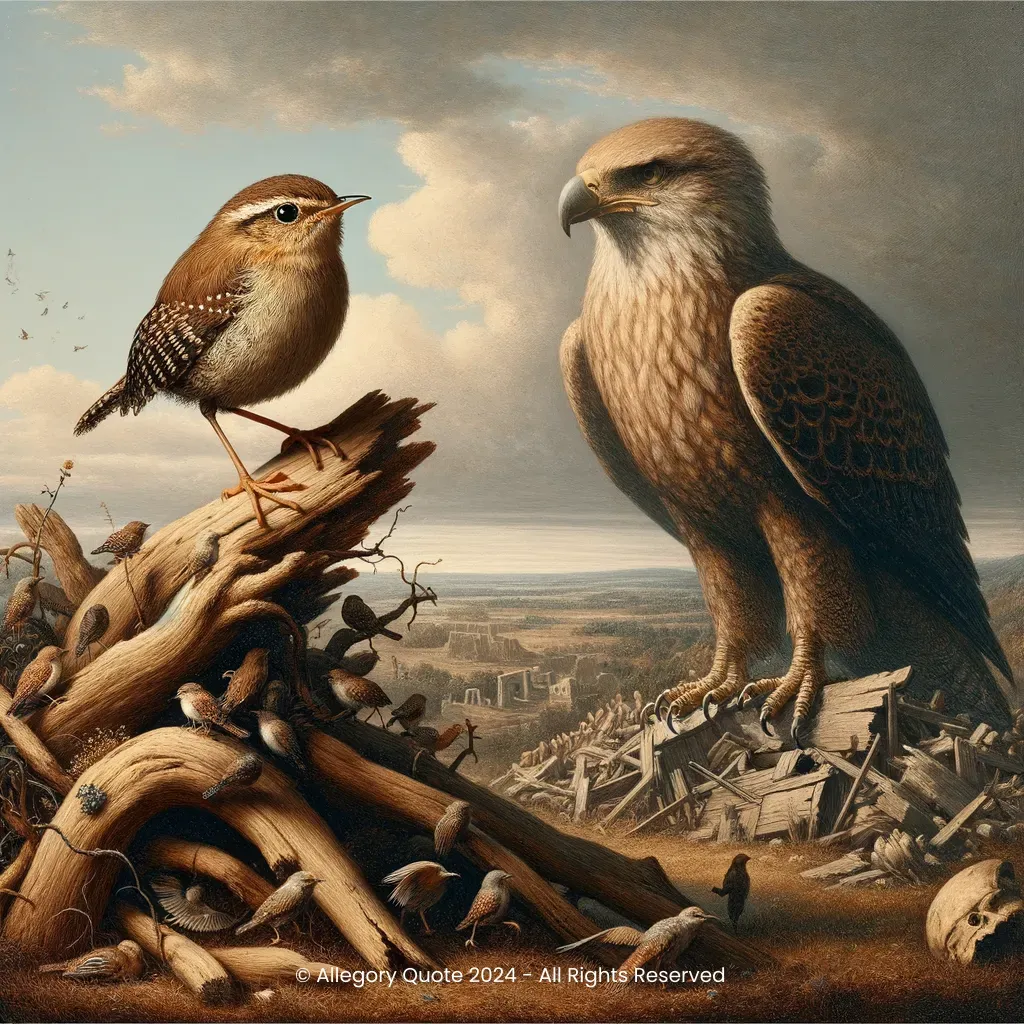
0
0
0
0
- Meaning
- This quote from Shakespeare's "Richard III" reflects a tumultuous and moral-declining world where even those who are usually seen as weak or insignificant (wrens) take bold and daring actions, while those who are presumed powerful and mighty (eagles) are hesitant or afraid. It alludes to societal change where traditional boundaries and hierarchies are being transgressed, resulting in an unpredictable and perilous environment.
- Allegory
- The image of the wren confidently perched high up represents the small and seemingly insignificant beings taking daring actions, while the eagle's reluctant position symbolizes the powerful becoming cautious. The ruined kingdom background serves as a metaphor for the world in a state of chaos and moral decline. The nature reclaiming the broken symbols of power illustrates the theme of shifting societal structures and the transient nature of traditional hierarchies. Together, these elements visually narrate Shakespeare's observation of a world increasingly governed by unpredictability and reversed roles.
- Applicability
- This phrase can be applied to current situations where societal norms and values seem to be turning upside down. In a world where conventional power structures are challenged, it reminds us to stay vigilant and adapt to the changing dynamics, understanding that unpredictability is becoming the norm. It also encourages caution and wisdom in facing situations that appear to be in flux.
- Impact
- This phrase highlights the contrast between the brave initiative of the less powerful and the unexpected caution of the powerful. It has inspired discussions on social change, power dynamics, and human behavior in unpredictable environments. The phrase encapsulates a timeless reflection on power and vulnerability and is frequently cited in literary and socio-political analyses.
- Historical Context
- Shakespeare wrote "Richard III" around 1592-1593 during the Elizabethan era. This period was marked by great political intrigue, social mobility, and moral questioning, reflecting the uncertain power dynamics and the often ruthless nature of the court and politics.
- Criticisms
- One could argue that this phrase paints an overly pessimistic view of societal change, potentially leading to fatalistic attitudes. Critics may also argue that it underestimates the potential for positive contributions from those seen as weak or insignificant (the wrens), implying that their bold actions are purely opportunistic and morally suspect.
- Variations
- Variations such as "The times are so bad, even the small dare what the great fear" exist in different literary contexts, reflecting similar perceptions of the reversal in societal norms and structures.
-
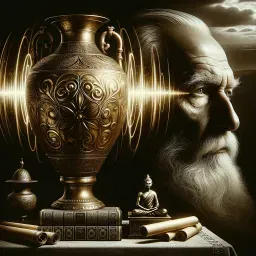
The empty vessel makes the loudest sound.
-
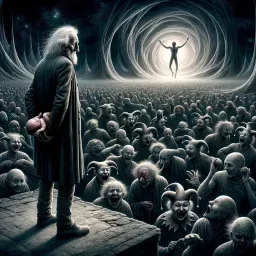
When we are born, we cry that we are come to this great stage of fools.
-
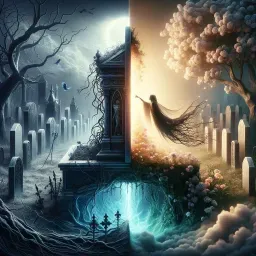
The evil that men do lives after them; the good is oft interred with their bones.
-
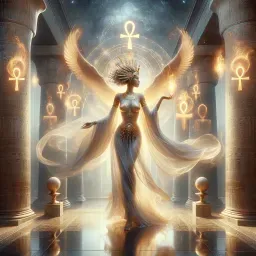
Give me my robe, put on my crown; I have immortal longings in me.
-
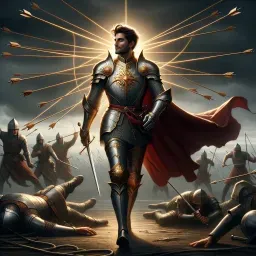
I bear a charmed life.
-

If you can look into the seeds of time, and say which grain will grow and which will not, speak then to me.
-

A friend should bear his friend's infirmities, but Brutus makes mine greater than they are.
-

I will wear my heart upon my sleeve for daws to peck at.
-

O, had I but followed the arts!
-
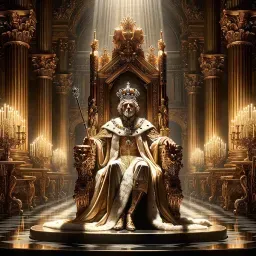
Uneasy lies the head that wears a crown.
-

I am constant as the northern star.
-
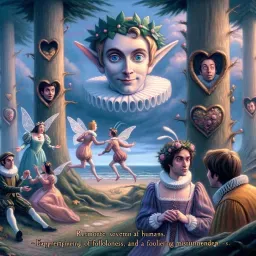
Lord, what fools these mortals be!
No Comments